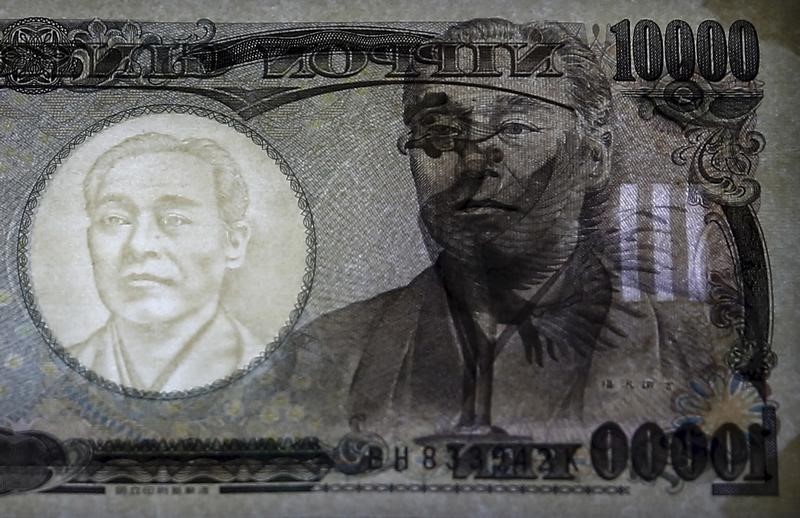Heron Therapeutics enters supply agreement with Patheon and Thermo Fisher
* Hubei province reports 14,840 new cases
* European stocks follow Asia lower, U.S. futures down too
* 10-year Treasury yields drop below 1.6%, European yields
* Euro steadies after slumping to near 3-year low
* Gold jumps 0.6%, oil stumbles back
* World FX rates in 2020 http://tmsnrt.rs/2egbfVh
By Marc Jones
LONDON, Feb 13 (Reuters) - A sharp rise in the number of
coronavirus deaths and infections unnerved world markets on
Thursday, as traders halted the rally in stocks and retreated to
the safety of government bonds and gold.
China's Hubei province, where the virus is believed to have
originated, reported 242 new deaths, double the previous day's
toll and the fastest rise since the pathogen was identified in
December. It also confirmed 14,840 new cases, though it was amplified
significantly by a switch to using quicker computerised
tomography (CT) scans - which reveal lung infections - to
confirm virus cases.
Excluding cases confirmed using the new methods, the number
of new cases rose by only 1,508, the official data showed,
though for markets the net result was more uncertainty about how
long problems are likely to persist.
Europe quickly followed Asia into red with London FTSE
.FTSE , Frankfurt's DAX .GDAXI and Paris' CAC 40 .FCHI down
0.3% to 0.9%, and the euro slumped near a three-year low against
the dollar after a torrid couple of weeks. .EU /FRX
AXA Investment Management's chief economist Gilles Moec said
the impact of virus could be part of a "perfect storm" for
Europe that hurts the economy for months and then gets
compounded by a heated trade battle with the United States.
"We started with the premise that this virus would be worse
that SARS and that has become consensus," Moec said.
"So attention turns to who is hit the hardest and Europe is
among the usual suspects and Germany in particular give China is
its biggest export market. So the reaction of the exchange rate
is probably rational," he added.
E-mini S&P 500 futures ESc1 were also down 0.5%, pointing
to a fade in Wall Street's strong rally.
With investors seeking safety, 10-year U.S. Treasuries fell
below 1.6% US10YT=RR , European yields fell around 3 basis
points, the yen strengthened past 110 per dollar JPY= and a
rally in oil prices halted. O/R
MSCI's broadest index of Asia-Pacific shares outside Japan
.MIAPJ0000PUS had snapped two days of 1% gains to end 0.1%
lower as most markets across the region posted modest declines.
"There is no panic on this," said Frank Benzimra, head of
Asia equity strategy at Societe Generale in Hong Kong, since the
dramatic rise seems so far to be contained to Hubei.
The new methodology effectively lowers the bar for
classifying new infections, contributing to the spike in cases.
Chinese officials said the method is only being used in Hubei,
though it was expected to be gradually extended to other
regions.
The virus has also cast a shadow over life in Asia's
financial markets, with Benzimra himself logged in from home and
speaking to clients by phone as meetings are increasingly
cancelled, even in cities not subject to quarantine.
"Most markets were recouping their losses so that has
offered maybe some excuse to sell Asian markets," he said. "But
there is not much energy in this."
Japan's Nikkei .N225 fell 0.1%. Australia's ASX/S&P 200
index .AXJO retreated from a record high. The Shanghai
Composite .SSEC fell 0.6% and Hong Kong's Hang Seng .HSI was
0.3% softer. Gold rose 0.6% XAU= to $1574 per ounce.
FORECASTING GLOOM
Markets had taken comfort from the World Health
Organization's (WHO) emergency programme head describing the
apparent slowdown in the epidemic's spread as "very reassuring".
Yet WHO chief Tedros Adhanom Ghebreyesus had also warned
that it should be viewed with extreme caution. "This outbreak
could still go in any direction," he said. More than 1,300 people have died from the epidemic in China
and the total number of cases in Hubei province now stands at
48,206. Across mainland China, the total number was almost
60,000.
Even before the rise in cases, economists were turning more
bearish on the likely hit to China's growth as factories idle
and supply chains are upended.
Citi on Wednesday again downgraded its 2020 GDP forecast for
China to 5.3%. The bank had forecast it to be 5.8% in its
January outlook, before cutting it to 5.5% two weeks ago.
Morgan Stanley believes a gradual, rather than sharp
recovery is the most likely scenario. That all bodes ill for
regional economies and has weighed on Asian currencies and
commodities.
The Australian dollar AUD=D3 , a liquid proxy for China's
economic health because of Australia's export exposure, retraced
its recent rally and traded 0.3% softer at $0.6716. FRX/
China's yuan was 0.1% weaker CNY= . CNY/ Rallying oil
prices stalled, with Brent crude LCOc1 flat at$55.72 per
barrel, 15% below where it was before the coronavirus outbreak.
(Editing by Sam Holmes and Alison Williams)
